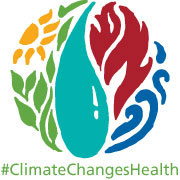
"Carbon pollution from power plants is our nation’s biggest driver of climate change, and threatens what matters most: the health of our kids, the safety of our neighborhoods and the ability of Americans to earn a living,” -- former EPA Administrator Gina McCarthy, in an EPA blog post.
Energy has allowed for many advances in our lives including power for homes, jobs and vehicles. But the energy used to fuel these advancements has contributed to climate change. When we burn fossil fuels, such as coal and gas, we release carbon dioxide. Carbon dioxide builds up in the atmosphere and causes Earth’s temperature to rise, much like a blanket traps in heat. This extra trapped heat not only increases temperatures, but it also disrupts many of the interconnected systems in our environment. This is climate change, and its conditions have far-reaching environmental, social, agricultural and economic effects that are ultimately harmful to our health and well-being.
Fossil fuels are not renewable resources; therefore, continued use could deplete them, causing damage to the environment and increasing the expense of extraction. Yet the use of renewable resources, including wind and solar energy, has impact on both health and the environment. Clean energy includes renewable energy resources as well as energy-efficient practices. Some renewable energy examples:
- Solar power is the transformation of sunlight and heat into electric or thermal energy. Solar panels are used to convert the sun's light into electricity.
- Wind power is the use of wind to generate electricity. This is achieved by converting kinetic energy from the wind to mechanical power through the use of wind turbines and converting mechanical power to electricity by using a generator. Wind is among the fastest growing sources of renewable energy used worldwide.
- Water power can be generated through the energy of falling or running water from rain, waves, tides and dams. Even calm streams are capable of generating significant amounts of electricity.
- Bioenergy is energy derived from plants or animals. Biomass is organic material (including human and animal waste) that can be converted into energy including biogas or biofuel in order to power vehicles.
- Geothermal power uses heat stored below the Earth's surface for electricity generation.
As the frequency of extreme weather events continues to increase — including droughts and wildfires, extreme storms and power outages, and record-breaking warmth and extreme heat events — our reliance on electricity builds, resulting in added strain on the energy infrastructure. Frequent extreme weather events will also promote health disparities and inequities among vulnerable populations. For example, those living on the boundaries of coal-fired power plants bear the burden of higher air pollution. In addition, workers with no other choice in economic growth who need coal mining jobs even though these jobs may result in higher risk of black lung or unsafe working conditions. Many communities transitioning away from fossil fuel extraction, including coal mining towns, have expressed serious concerns about job loss due to the transition from coal. Thus, there are even equity concerns in the transition away from fossil fuel reliance.
Clean energy has great benefits for the environment as well as for our health. Some of the ways we can reduce our carbon footprint (the total amount of greenhouse gases produced directly and indirectly during the course of daily activities) include increased walking, biking and mass transit use, which have direct health benefits compared to driving. Other ways to reduce our collective carbon footprint are: support equitable policies that create infrastructure for safer mass transit, biking and walking options; defend federal regulations that put carbon pollution limits on climate-harming pollutants; and support the creation of more clean energy jobs. Tell your members of Congress to oppose any efforts to delay or block the Clean Power Plan, which plans to reduce carbon pollution that contributes to climate change.
Learn more:
(*blog posts only represent the views of the author)
Follow the conversation using the hashtag #ClimateChangesHealth.
CLIMATE CHANGE AND HEALTH SPOTLIGHTS